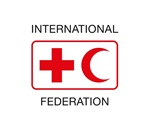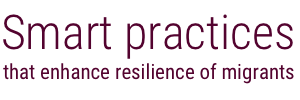Advocacy that uses systematic, timely and measured presentation of evidence, which is collected directly from Red Cross Red Crescent programmes. This type of evidence can create a credible and compelling body of evidence and insights for policy makers, and strengthen Red Cross Red Crescent humanitarian diplomacy efforts.
The Australian Red Cross uses evidence and expertise collected from working with people affected by human trafficking and forced marriage to advocate to the government. Specifically, evidence collected from the Support for Trafficked People Programme is consistently used to support asks. The Australian Red Cross has independently and in collaboration with other organizations successfully advocated to increase the ‘reflection and recovery’ period of the Support Programme from 30 to 45 days. Advocacy has also contributed to some changes in government policy. In 2015, the Australian government changed its Human Trafficking Visa Framework. This change improves access to government financial support, removes the term ‘trafficking’ from permanent visas, improves confidentiality, and avoids ongoing stigmatization, among other benefits.
The Swedish Red Cross engages the government with a similar advocacy technique. During monthly meetings with the Migration Board, practical evidence which has been collected from work in the field is used to support asks. Volunteers and colleagues in the field are aware of the strategy and share potentially relevant information on what is happening. Volunteers and staff have refined their skill at selecting information through years of experience. In addition, the Swedish Red Cross has introduced documents and templates to help evidence collection. The Swedish Red Cross also commissions studies for further evidence. For example, a comprehensive study on detentions has been used extensively.
Evidence based advocacy is particularly effective at local level; it is also effective in changing cross-governmental policy and encouraging collaboration across the sector and government.
Design. [P1] Focus on the vulnerabilities of migrants on the policy side. [P4] Discharges humanitarian responsibilities to ensure that while providing services, policies that impact the most vulnerable clients on an individual and systemic basis are changed to protect their rights.
- Some volunteers may not prioritize reporting or collecting evidence for advocacy purposes.
- Evidence collection and advocacy must be embedded in programming and staffing at all levels.
- At the Australian Red Cross, they have found that for many programmes, gathering clear evidence increases the likelihood of policy change.
- A collaborative approach with the sector and key government departments is key to change.
Smart practices
Smart practices report and database survey
About the report
People migrate in pursuit of a better life for themselves and their families. As described in the International Federation of Red Cross and Red Crescent Societies’ (IFRC) Policy on Migration, “migrants are persons who leave or flee their habitual residence to go to new places – usually abroad – to seek opportunities or safer and better prospects.
Read more
About the International Federation

